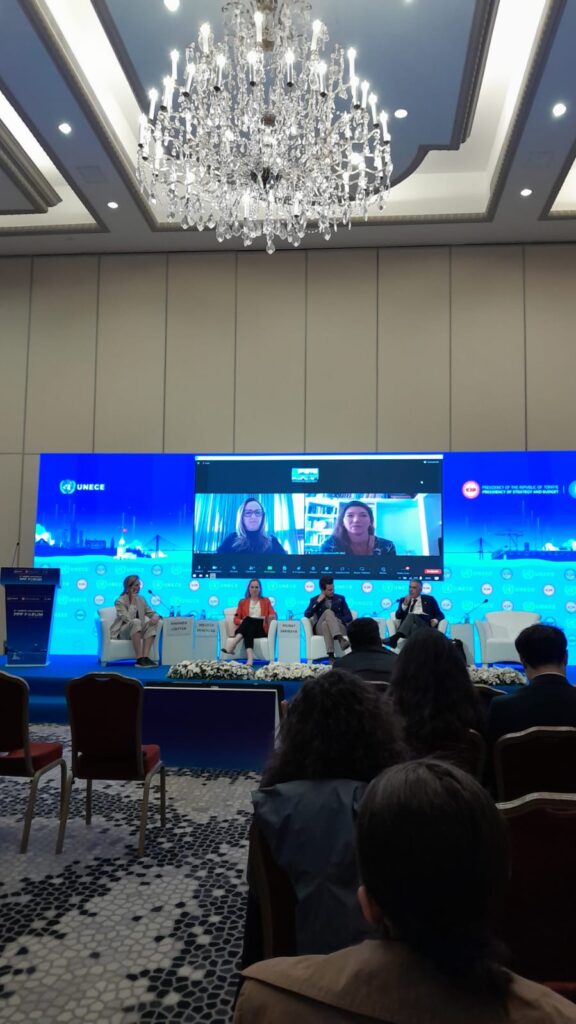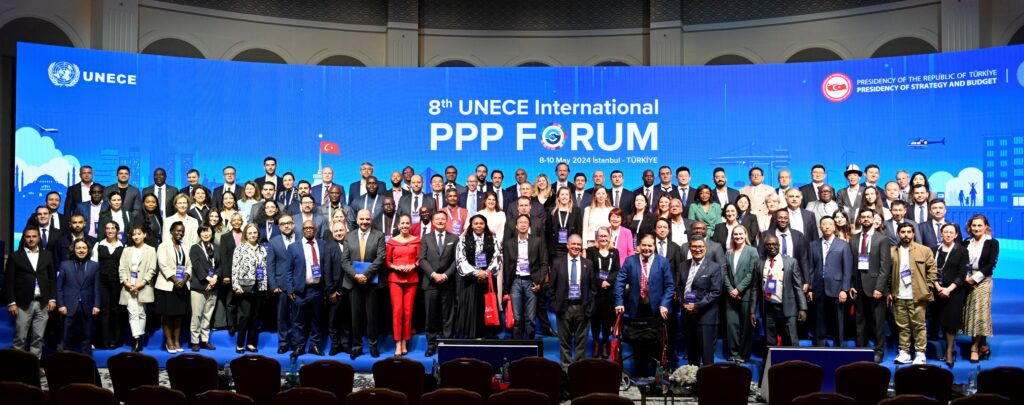For too long, Public-Private Partnerships (PPPs) have fixated on individual projects rather than embracing a broader, transformative approach to infrastructure development. This narrow focus has limited their potential to address the complex challenges outlined in the Sustainable Development Goals (SDGs). However, the UNECE “PPP and Infrastructure Awards” aim to change this narrative by spotlighting projects that transcend conventional boundaries and drive holistic societal change.

Figure 1: Session Panel
Amanda Loeffen, CEO of HR2W, moderated the session with Ms. Melissa Peneycad in the session Revisiting the winning projects of the UNECE “PPP and Infrastructure Awards” in 2021 and in 2023 at the 8th UNECE International PPP Forum in Istanbul, Turkey, 10th May 2024. These projects showcase the “business case for sustainability,” quantifying wider value beyond finances. They inspire replication by emphasizing lessons learned and success factors.
Nova Ceasa: “More Than a Market, a Movement” – UNECE
The 2021 award-winning project, Nova Ceasa in Brazil, exemplifies the power of PPPs to reshape urban landscapes and empower local economies. This discussion was brought by Ms. Viviane Bezerra, Special Advisor to Brazil’s Investment Partnership Programne (PPI), and Mr. Pedro Neves, CEO of Global Solutions in Portugal. Nova Ceasa redefines the concept of a market complex. Beyond its physical infrastructure, the market serves as a hub for sustainable agriculture, fostering job creation, food security, and social cohesion. Its success lies not only in its economic viability but also in its ability to enhance the well-being of surrounding communities and promote environmental stewardship. The project is now being rolled out across Brazil due to the wider benefits that it provides.
Similarly, the 2023 award-winning project, the 1915 Çanakkale Bridge in Turkey, represents a landmark achievement in infrastructure development. The CFO, Mr. Murat Sarikaya, explained how the bridge transcends its function as a transportation asset to become a symbol of connectivity and prosperity. Beyond facilitating cross-border mobility, the 1915 Çanakkale Bridge embodies sustainability principles, incorporating innovative design features to minimize environmental impact and preserve natural ecosystems. By prioritizing sustainability alongside functionality, this project demonstrates how infrastructure investments can align with broader environmental and social objectives.

Figure 2. PPP Forum Partipants

